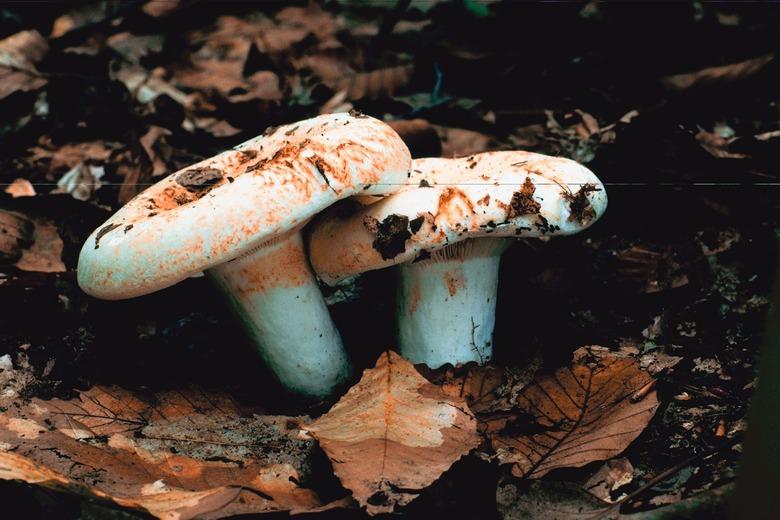What Chemicals Will Kill Mushrooms?
Mushrooms are the product or fruit of fungus-rich soil, just as apples are the fruit of the apple tree, but unlike tree fruit they can literally come to maturity overnight. The fungus feeds off decaying substances in the soil, such as old rotting mulch, dying tree stumps and animal feces. Chemical products are one way to rid the yard of the mushrooms and fungi, but removing the organic matter that feeds the fungi is a better long-term approach.
Tip
Fungicides and other chemicals can help in your battle against mushrooms, but natural measures may be the better option.
Applying More Fertilizer
Fertilizers containing nitrogen not only stimulate lawn growth, but can also rid the lawn of mushrooms. Nitrogen rich soil provides the perfect base for a fast-growing lawn, but also increases organic waste and matter decomposition times.
It's exactly that organic waste and decomposing matter that feeds mushrooms and other fungi. Because of this, nitrogen has the effect of speeding up the growth and breakdown of the mushroom systems, lessening the lifespan of the fungus. It doesn't directly or immediately kill them, but it will make them go away sooner.
Using Commercial Fungicides
Fungicides, available in both powder and liquid form, are chemical compounds used in the removal of different types of fungi. Depending on the type of fungicide used, the chemical may either slow the growth of the fungus, keeping new growth from being reproduced or kill the fungus, causing both the fruit and root system to die.
Fungicides must be used with care, especially when used in gardens or on lawns where pets and children walk or play. Bear in mind as well that healthy soil is a complex ecosystem of its own and requires the active presence of many little-understood fungi. Applying fungicides too freely can result in poor soil, and a less-healthy lawn.
Changing Soil pH With Lime
Lime, used by gardeners to prevent pests from eating plants and raise the soil's pH levels in gardens and lawns, can also help slow the growth of mushrooms. While grass and some flowering plants thrive in a higher pH level soil, mushrooms prefer lower pH levels and will not grow well or produce fruit in alkaline soils. While lime will not actually kill the mushrooms, it can work to slow and eliminate the fungus when used in conjunction with other lawn chemicals. Be careful, however, when applying lime because many landscape plants prefer acidic soils, and they may be adversely affected by the addition of too much lime.
Think Before You Spray
While chemical products can slow the growth of fungi and even, at times, eliminate it from a lawn, fungal growth is a sign of a rich soil ecosystem and fruit may reappear if soil conditions remain fertile. A better long-term strategy is to address conditions that promote the growth of mushrooms on your lawn.
Removal of animal feces and other decaying matter, such as rotting tree stumps, can help eliminate the growth of fungi. Lawns mowed on a regular basis may also help slow the spread of growing fungi fruit. Homeowners should also not use fungus-infested lawn clippings in compost, as the fungus can easily spread to any area where the compost is used.
